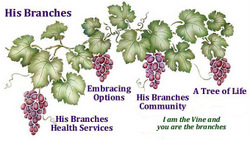Getting the big picture
Oftentimes, many in ministry get passionate and involved in one area of need and think if they solve this particular problem that all else will be resolved. Christians, of course, often focus this area on a personal relationship with Jesus Christ. Of course, the most essential element to Christian Community Development is evangelism and discipleship. Yet solving problems with lasting solutions is more than evangelism and discipleship.
There is never a simplistic answer to the problems in poor communities. Often, people will say that the problem is spiritual, social or educational. Of course these are problems, but they are only part of the larger problems. Solving the housing problem does not solve the emotional struggles that a person has. Christian Community Development has a wholistic approach to ministry that deals with the spiritual, social, economic, political, cultural, emotional, physical, moral, judicial, educational and familial issues of each person.
Of course, the wholistic approach is difficult because there are so many aspects to a person’s life. That is why there is no better way of helping a person than having him or her committed to a local church. A church that is committed to Christian Community Development sees not only the soul of a person as significant, but also his or her whole of life on earth. It is being completely pro-life for a person, not only eternally, but also as the person lives on this earth.
Therefore, Christian Community Development sees the church must be involved in every aspect of a person’s life. It is important to network with other churches and organizations in communities. In order to accomplish the wholistic aspect of ministry, pastors and leaders must be networkers. Christian Community Development builds coalitions in communities so that they can work together to solve the problems.





